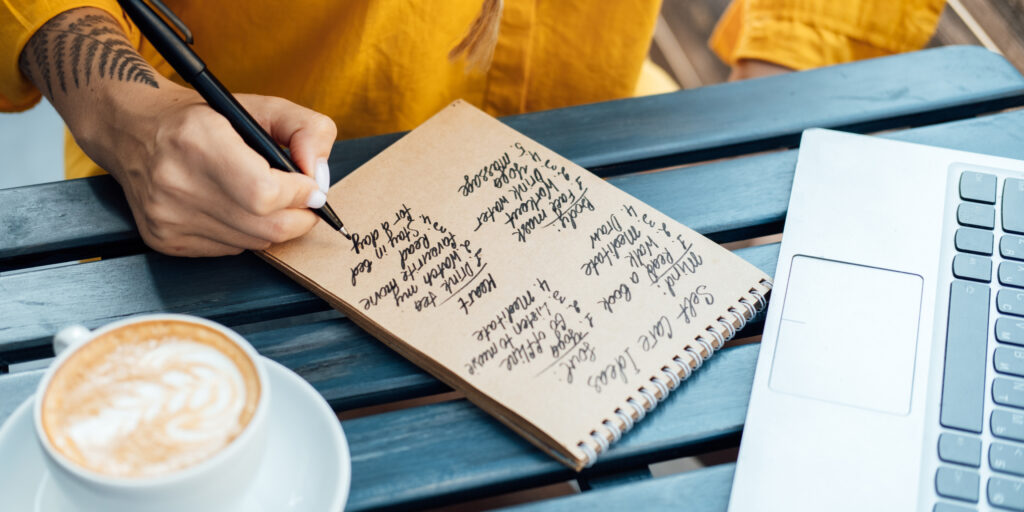In a world inundated with fad diets, lifestyles, and supplements, it’s easy to be seduced by quick fixes for wellness, health problems, or even performance gains. Many health coaches whether they specialize in nutrition or fitness often gravitate toward solutions that promise immediate results. But what if we changed our mindset and adopted a more holistic approach to our health and well-being?
Today’s fast-paced lifestyle brings with it a host of health problems and chronic illnesses, making self-care more important than ever. To thrive, we need to look beyond superficial solutions and understand the interconnection between our bodies and the environment.
Transform your approach to health and wellness

Early in my career as a health coach and nutritionist, I realized the importance of a holistic approach to wellness. This approach is not limited to physical health; it’s about taking into account all aspects of a person’s well-being. Our body is a complex system that requires balance in all areas – physical, mental, emotional and environmental – to function optimally.
For example, focusing solely on nutrition may bring certain benefits, but it neglects other essential factors such as stress, which can lead to deeper health problems. Focusing on just one aspect of health is like trying to solve a puzzle with missing pieces.
Health and Wellness
By understanding and implementing a holistic approach, we can transform our approach to health and well-being. It’s about empowering ourselves, our families, and our clients to make informed, balanced health decisions. This path may not offer quick fixes, but it does promise something far more valuable – a sustainable, holistic approach to living a healthier, more fulfilling life.
The six key elements of true wellness
It’s essential to look at the big picture, and that’s where the Six Pillars of Health approach comes in. These include:
- Self-care
- Holistic Nutrition
- Stress management
- Sleep
- Physical activity and movement
- Environmental harmony

Each is crucial in its own right, and deeply interconnected with the others. For example, chronic diseases such as diabetes, migraines, cardiovascular disease, and autoimmune disorders require a multi-faceted approach. By addressing all aspects of health, we can begin to see lasting and significant changes in our own lives and in the lives of those we help.
Taking care of yourself
Many people have heard of these health management methods, particularly from health, fitness, or nutrition coaches. However, what other practitioners don’t often talk about is the fundamental principle of this health “structure”. Imagine building a house. If you try to place pillars in the ground without a foundation, what will happen? They’ll collapse because the foundation isn’t there – there’s nothing solid holding those pillars in place.
The coaching approach I teach is not only about the pillars of health but also about what it takes to succeed in achieving your health goals. Mindset and self-care must be the first step in our approach to health coaching. This is the foundation of our six-pillar approach to health and well-being.
The foundation of wellness
When was the last time you paid attention to your body’s needs and really listened to it? Mindfulness and self-care can be seen as synonyms, but at their core, they mean deliberately focusing on the things that benefit your physical, mental, and emotional well-being. Most people neglect to take care of themselves or haven’t defined the reasons why they want to change before embarking on the path to wellness. If you’re not aware of why, it can be harder to stay on track, and you’re unlikely to achieve real long-term change. Your choice to change needs to be anchored in the fact that you’re taking care of yourself.

What is self-care?
Self-care can be as simple as not looking at your phone before bed because it disrupts sleep, going for a walk, booking a massage, taking a vacation, or giving yourself a nice break at lunchtime. Many of us forget that taking the time to reconnect with who we are and what we want in life will enable us to have a healthier relationship with ourselves and feel more energized in all aspects of our lives.
Taking care of ourselves is not a selfish act, it’s the ability to look at how we are evolving in our world and how that can affect us and others. If we’re not at our best, how can we help others and even ourselves to the best of our ability? By giving yourself a break, you can rediscover and reintegrate the parts of yourself you want to share with those around you. Your renewed energy will benefit those around you even more.

What is mindfulness?
Mindfulness practices enable us to wake up, pay attention, and be present in order to make the most of each day. They teach us to react more calmly to situations and recognize our bad habits. It can also help us become more tolerant, less judgmental, and kinder to others and ourselves. Many people are faced with stress and long working days. The tools of mindfulness help us to feel grounded in what can feel like a swirling sea of chaos, and to find the calm we need.
Mindfulness, when practiced and cultivated, gives YOU back control of your life. It allows us to see solutions or signposts that put us on the path to joy and happiness when we might otherwise feel like we’re losing our minds.
Stress management

Modern life is full of stress. The regular pressures of life – finances, family responsibilities, health problems, and work demands, to name but a few – are overwhelming for many. Devices created to make life easier, such as technology, cell phones, and the internet, have in fact led to an acceleration of the pace, an increase in demands, a reduction in rest time, and an overstimulation of the mind. Generally speaking, today’s human beings are overloaded with stress. This stress has health repercussions that can last a lifetime. It is now recognized that the main causes of death and disease on the planet are preventable chronic diseases linked to lifestyle.
Holistic Nutrition

Our body is a complex system of metabolic pathways, energy, and chemical reactions, and it all depends on what we put into it. Our food is directly linked to the building blocks of our cells, muscles, and organs, and plays an essential role in our vitality.
Holistic Nutrition can cover topics including:
- Macronutrients
- Micronutrients
- Water
- Other important nutrients
- Digestion & the microbiome
- Food production & its importance in our well-being
- Management of chronic illness
- Weight loss, maintenance, & weight gain
Sleep

Most adults need at least seven hours of sleep a night to maintain their cognitive and behavioral functions. Insufficient sleep can have serious repercussions. Some studies have shown that sleep deprivation makes people vulnerable to loss of attention, cognitive decline, delayed reactions, and mood swings.
It has also been suggested that people can develop a kind of tolerance to chronic sleep deprivation. Even if their brain and body are suffering from sleep deprivation, they may not be aware of their own deficiencies because they feel that sleeping less is normal. In addition, sleep deprivation has been associated with a higher risk of certain diseases and medical conditions. These include obesity, type 2 diabetes, high blood pressure, heart disease, stroke, poor mental health and premature death.
Physical activity and movement

Man was made to move. Our bodies have evolved to walk, jump, run, swim, bend, squat, and so on. Most of us don’t use our bodies to their full potential; in fact, we’ve made sitting an art form! We sit to eat, we sit at our desk, we sit in our car and we sit to relax watching Netflix. Sit, stay, repeat.
Sedentary behavior and excessive sitting have been linked to numerous conditions such as:
- back pain
- neck pain,
- loss of flexibility
- mobility problems
- hypertension
- cancer
- diabetes
- cardiovascular disease
- depression
- obesity
Our lack of movement is recent in human history. Just 150 years ago, our ancestors spent more hours on their feet and only sat for an average of 3 to 5 hours, mostly during breaks between jobs. In contrast, in our modern Western culture, we sit for an average of 13 to 15 hours a day! In countries like Canada and Australia, excessive sitting is the new smoking; in other words, excessive sitting is a national health problem. Excessive sitting is a national health problem, not only for adults but also for children, as rates of obesity and other health problems associated with a sedentary lifestyle are on the rise. We have therefore established that movement is an important pillar of a healthy lifestyle.
Understanding Nutrition: A Journey Back to Nature for Health & Wellness

We often forget how connected we are to nature. As I learned more about holistic living, I realized that to lead a healthy life, we had to examine:
Where and how our food was grown
What chemicals companies and farms were using in their products
What were the effects of living too much indoors?
As we delve deeper into the question of health and well-being, we realize that our environment plays a key role in our health.
If we keep in mind the concept that our environment (sun, water, food, air, chemicals, etc.) is information for the body, we begin to realize how essential it is that we start paying attention to how we interact with nature.
For example, whole foods that are close to nature and grown healthily will provide the right information to our c

This is not the case with food and other products produced by an unsustainable global system. We can see the impact of industrially manufactured products (including food) on our health, our culture, and society as a whole.
To achieve optimal health, we must do everything in our power to create a healthy body and environment.
In the complexity of modern life, it’s essential to remember that our health is a multi-faceted jewel.
In conclusion, adopting a holistic approach to wellness is not just a preference, it’s a necessity for optimal health in our modern world. I’ve learned that the key to sustainable health and well-being lies in understanding and taking into account the different aspects of our lives that contribute to our overall health. This is where my six-pillar approach to health, which encompasses self-care, healthy eating, stress management, sleep, physical activity, and environmental harmony, becomes vital.
Meet Lynne Faires

With 10 years of experience cultivating and inspiring positive change on a global scale, this is my driving force! As an experienced mentor and coach, I specialize in guiding individuals and budding practitioners in the fields of nutrition, holistic culinary skills, permaculture, and business. Since launching into coaching in 2013, I have co-founded the Holistic Nutrition Hub and the Health Coach Collaborative, propelling the mission of a healthier world.